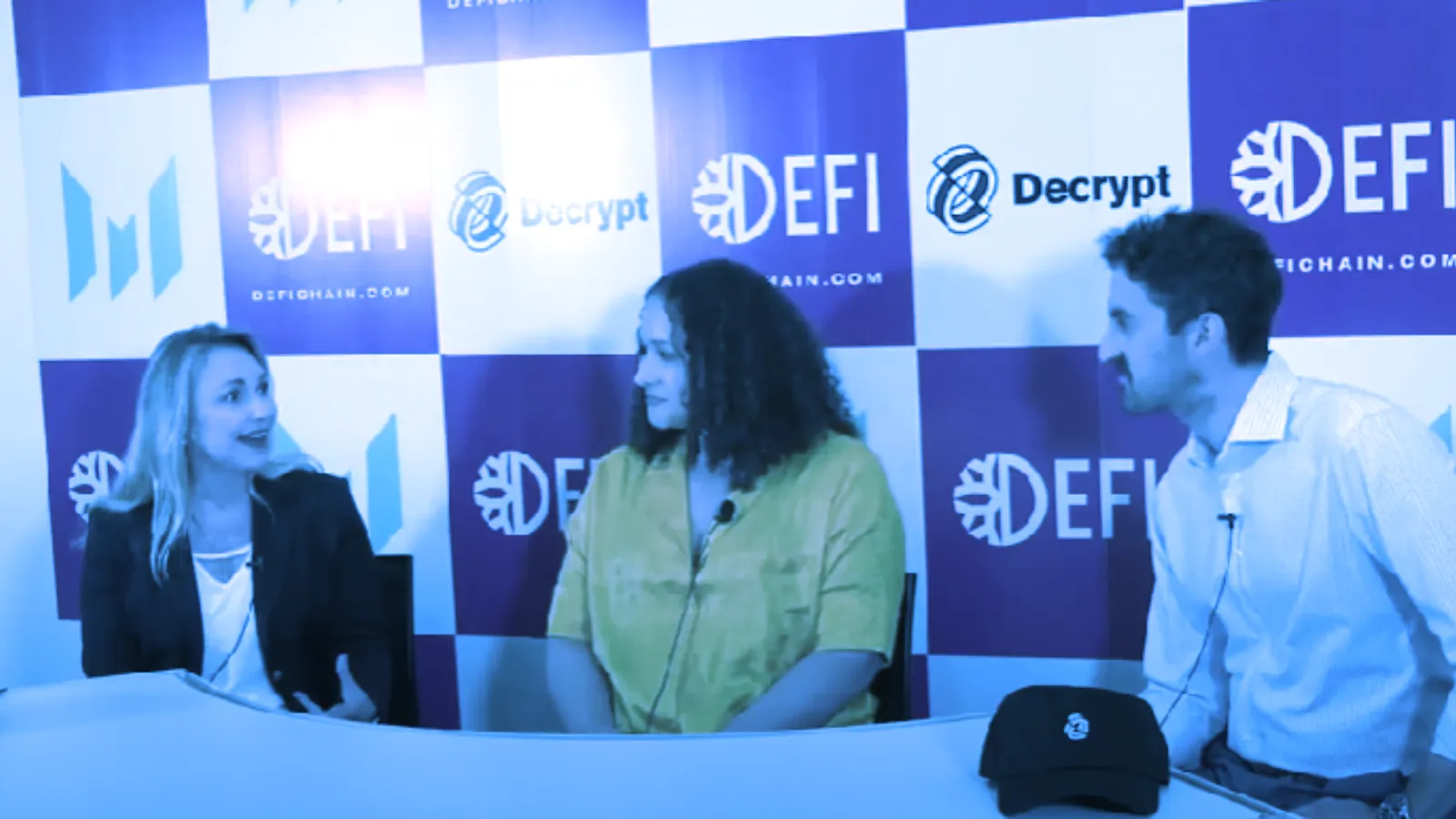As blockchain companies continue to grapple with evolving regulations and an uncertain future, many must decide whether to wait for permission or just launch and potentially beg for forgiveness—if forgiveness is even on the table.
"It's much easier if you launch your network in a compliant way," Teresa Goody Guillén, an attorney at Baker Hostetler and former SEC litigator, tells Decrypt at Messari Mainnet.
One way to do this, Guillén says, is by being fully functional and decentralized at launch, making the project less likely to be considered a security—a crucial test of compliance.
Guillén explains that most problems start when a developer does not receive guidance or advice before launching their network, only to find out later that regulators consider what they launched to be a regulated security.
"It's much easier to launch [the network] right the first time," Guillén said, adding that launching as a non-security is much easier than trying to claim a token that has been deemed a security is suddenly not. "It's very difficult to go back and remediate that," she says.
"I think it's difficult because I think the enforcement is so aggressive right now," Guillén says. "There isn't more guidance coming out, even though there are a lot of calls for guidance."
Saying that there is no guidance or lack of a regulatory framework is common across the blockchain industry, a refrain that many regulators and some inside the industry see as an excuse not to follow the rules already in place.
For Guillén, the issue isn't that there is a lack of rules, but that the rules are confusing. "People are trying to comply with the rules, and they are confused by them," Guillén said. "And some of the rules don't really make specific, particular sense as it relates to digital assets."
Guillén says the aggressive enforcement regime may cause a chilling of innovation in the future.
In the U.S. alone, several government agencies, including the Securities and Exchange Commission (SEC), the Commodity Futures Trading Commission (CFTC), the Treasury Department, and the Department of Justice, have all taken aim at cryptocurrency in the last year. Last month, the SEC charged crypto influencer Ian Balina with violating securities regulations when conducting Sparkster's ICO in 2018.
As Guillén explains, the devil is in the details.
"The SEC put down what it considers a line in the sand in July of 2017 when it issued the DAO report."
Guillén says paying attention to what the SEC is publishing is essential. "Every time something comes out from the Commission, it's important to include that in your analysis."
Guillén said that what adds to the regulatory confusion is when a statement comes out from an SEC official that is a personal opinion and not an official SEC statement. For example, SEC Chair Gary Gensler and previous Chair Jay Clayton have said Bitcoin and Ethereum are not a security, respectively, but the SEC has yet to make an official determination.
Guillén says that one thing that is helpful in cases like Bitcoin and Ethereum is that someone with the stature of an SEC chair saying something makes it difficult to argue, considering the amount of analysis that they would presumably have conducted before making the statement.
But, as Guillén pointed out, the Ethereum merge could change this.
Before Ethereum completed its much-anticipated merge on September 15, 2022, the number one blockchain for dapps and NFTs utilized a proof-of-work consensus algorithm like Bitcoin. Ethereum now uses a proof-of-stake consensus algorithm, which may solve its bad for the environment reputation but could also put it back in the SEC's crosshairs.
"I think Gary Gensler is probably going to take this as an opportunity to try and distinguish that prior analysis [of Ethereum] from a current analysis," she said.
Guillén points to the analysis of former SEC director Bill Hinman who in 2018 said Ethereum was sufficiently decentralized not to be considered a security.
"[Hinman] said the Ethereum network is decentralized enough such that people will not rely on the managerial efforts of somebody to increase the value of ETH," she says. "And [Hinman] also talked about the whole point of the securities laws in this area is it's a disclosure regime."
As Guillén explains, a disclosure regime tries to redress the issue of information asymmetry between an insider and an outsider. "So for the Ethereum network, there really isn't anybody who has anything to disclose," Guillén said. "There are no insiders with material nonpublic information."
Guillén says what is unprecedented—and a sign that not all regulators think alike when it comes to cryptocurrency and blockchain innovations—are the commissioners in the agencies pushing back against what many have called regulation by enforcement.
"The fact that you had a commissioner of the CFTC publicly fight back with the Coinbase action and say, ‘this is regulation by enforcement,’ for a commissioner of an agency to then speak out that way against the sister agency, I think, is very telling."
For Guillén, the answer may lay in cooperation between regulators and developers, adding that regulators need industry insiders to help make sense of this new technology.
“Hopefully, especially when it comes to things like this, [regulators] will engage more with the industry and let the industry inform them and educate them,” she said.

